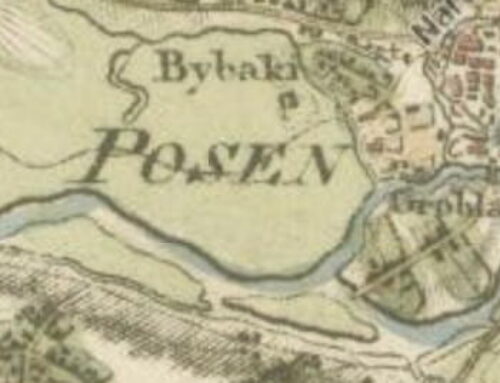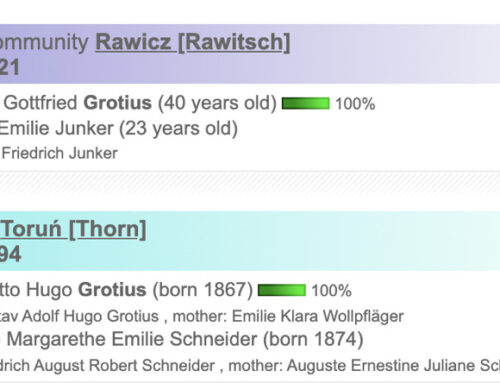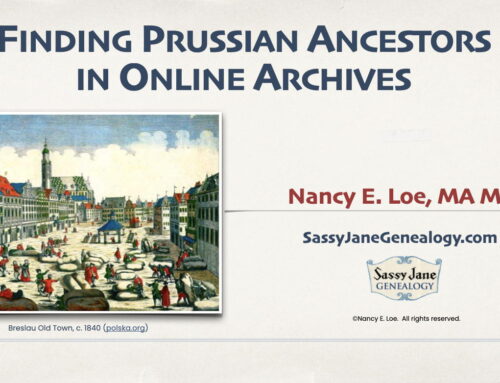Have you found duplicate Prussian marriage records in your research?
At last night’s Legacy Family Tree webinar on Locating Ancestors in Prussian Genealogy Records, one genealogist asked me about finding two different records for the same event. I gave her two answers. Of course, right after the webinar ended, I thought of another way this could have happened. So here’s an update!
Reasons for Duplicate Prussian Marriage Records
My first thought was that perhaps this genealogist had found records of German marriage banns. Before a Christian marriage could take place, the parish pastor read the banns at Sunday services for three weeks preceding the marriage. These proclamations were made to ensure there were no impediments to the forthcoming marriage.
Did the bride and bridegroom live from different parishes? Church books from those parishes might each note the marriage. When searching for a missing Prussian marriage record in my family, I ended up with two records for the same event for just this reason.
Two Records from One Parish
Duplicate marriage records for a wedding in the same parish may also exist because of Kirchenbuchduplikat volumes. This FamilySearch Research Wiki explanation for Baden Kirchenbuchduplikat holds true for other German states, including Prussia:
Inspired by the institution of civil registration in France in 1792, German states began creating church book duplicates. The German states required the clergy to create a transcript of their church books and turn them in annually to the state. The clergy recorded the vital events of births, marriages, and deaths of people living within their jurisdiction regardless of their religion.
So, in some instances, both the parish Kirchenbuch and the state Kirchenbuchduplikat survived. Two records for one birth, marriage, or death, may then occur.
In the midst of research joy, when you are hot on the trail of a new vital record, it can be easy to lose track of whether you’re working from a parish church book or copy. Check the source citation, which notes whether you have the original parish book or a handwritten duplicate. Or check the title page for that parish book. The image at right notes that this is a “Duplicate des Kirchenbuchs den Freyenwalde.”
Duplicate records may also exist after civil registration for German states began. These records were usually created some time after 1871. A church book record and a civil registration may both exist for the same event.
In any case, finding duplicate Prussian marriage records is good news, as long as you know where those records came from-and cite your work! Want to know more? Click here.






Leave a Reply